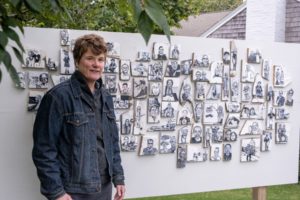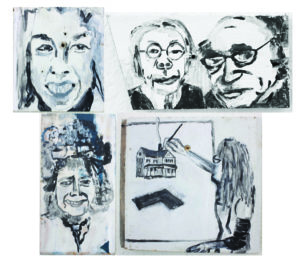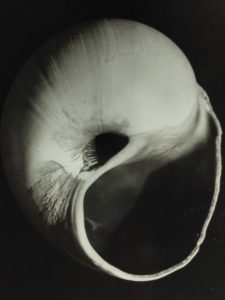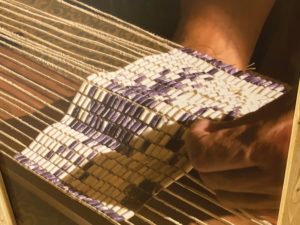Roomful of Blues at Provincetown Town Hall
Musical history tells us that the blues were born in the Deep South more than 150 years ago, incorporating spirituals, work songs, and narrative ballads from the cultural traditions of enslaved African Americans. But like many forms of expression, the genre has evolved and expanded over time. Roomful of Blues will present its own contemporary version of the genre on Saturday, Nov. 19 at 7 p.m. at Provincetown Town Hall.

The Providence, R.I.-based group debuted in 1967 and quickly established its bona fides: no less an eminence than Count Basie called them “the hottest blues band I ever heard.” Despite their name, putting their sound into a specific category hasn’t always been easy. The band is known for music that’s closer to the electric genre known loosely as Texas Blues: you’ll hear more Stevie Ray Vaughn and Fabulous Thunderbirds than Ma Rainey in many of their songs.
Their most recent album, In a Roomful of Blues (2020), features 10 original songs written by band members — the most they’ve ever included on an album — that cover an eclectic range of styles and influences, including zydeco, rock and roll, and Latin-inflected funk. (Keep an ear open for “Phone Zombies,” their tongue-in-cheek single about the perils of modern technology, when they take the stage at Provincetown Town Hall on Saturday; you can also check out the video of the song on YouTube.) But underneath it all, the eight members of the band maintain the rhythm and chord progressions that have defined blues music since the 19th century.
Tickets for the concert, which is presented by Payomet Performing Arts Center, start at $22 and can be purchased at payomet.org. —Richard Read
Yokel Brings a Community Together
If you’ve walked down Main Street in Wellfleet over the past several months, chances are you noticed Megan Hinton’s Yokel installation outside Wellfleet Preservation Hall. Painted on pieces of wood reclaimed from construction projects and demolitions, the more than 80 portraits that make up the installation depict local residents and assorted friends from further afield and are intended by Hinton to recontextualize the formerly pejorative label “yokel” to refer to and celebrate the vibrant and close-knit Outer Cape community.

“Yokels are artists, friends, eccentrics, activists, acquaintances, couples, even the dead,” says Hinton. “This installation is an attempt to gather folks together after pandemic years apart, while war is waging and basic human rights are being taken away.”
On view outdoors since May, Yokel will be reinstalled indoors at Farm Projects (355 Main St., Wellfleet) for a one-day closing event on Sunday, Nov. 20 at noon. While individual pieces in the project might be exhibited on their own elsewhere, and while the project may appear in book form at some point in the future, Hinton says the Farm Projects event will likely be the last time the entire series will be shown as a whole.
“I really appreciate how inclusive a project this is,” says Farm Projects director Susie Nielsen. “The works are abstract enough that they could be portraits of anybody. But it’s really a project about a community of individuals, and that’s a beautiful thing.” —John D’Addario
Photographs of Intimate Isolation
Deirdre Portnoy’s elegant photographs, which she prints in a makeshift darkroom in her Wellfleet home, typically focus on singular objects found in nature. In her “Icon Series” of black-and-white silver gelatin prints, she photographed objects she encountered during a residency in a dune shack. By isolating the objects, she says that “the detail visually translates a feeling of place.”

A selection of her work is on view at the Wellfleet Adult Community Center through Dec. 1, with an artist reception on Sunday, Nov. 20, 3 to 5 p.m.
In one photograph, a conch shell is displayed against a black frying pan, emphasizing the sensual curves of the object. In another, Portnoy focuses on the peak of a dune rising in the landscape. In the starkness of their isolation, both images reveal the quiet and subtle beauty of the dunes.
The modest scale of Portnoy’s photographs echoes the intimacy of her subject matter — and the intimacy she hopes the viewer will feel when they look at them. “I prefer someone to get close to the image, to really take it in,” she says. —Abraham Storer
Keeping a Search Alive
When the Wampanoag sachem Metacom died in 1667, he was “well-respected and had done everything he could to save his people,” says Nathalie Ferrier, director of the Higgins Art Gallery at Cape Cod Community College. But Metacom’s elaborate belt, a symbol of both his power and the history of his people, was stolen upon his death — and the Wampanoag Nation is still searching for it.

“WAMPUM: Stories From the Shells of Native America” tells the story of Metacom’s missing belt and the significance of traditional art in cultural preservation. It is on view through Nov. 29 at the Higgins Gallery (2240 Iyannough Road, West Barnstable).
Curated by the Native-owned Mashpee-based production company SmokeSygnals, the exhibit weaves contemporary Indigenous art and storytelling with historical significance and expression. “Each shell bead is imbued with memory and meaning by the maker,” according to the exhibition website. The wampum belt in the show is made of beaded shells — whelks and quahogs — that pair white with “all the purples you can imagine,” says Ferrier.
Ferrier sees the exhibition as crucial for the gallery because it’s located on Wampanoag land. She says that of one of her goals as gallery director is to “allow people who are unseen to be seen,” and keeping the history of Metacom’s stolen belt from being forgotten is part of that.
Before arriving at 4Cs, the show toured the United Kingdom and Martha’s Vineyard. It will head to Brown University next. A webinar about the exhibition featuring Steven Peters of SmokeSygnals will take place on Tuesday, Nov. 22. See www.capecod.edu/higgins/ to register. —Sophie Mann-Shafir



